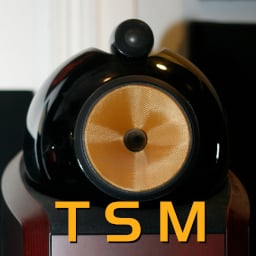

That’s what the FUTO Circles project was supposed to be about, but sadly the project got ditched by the original devs for it only a year after it started. Info on that here - https://youtu.be/OKTOhxeKrK0
audio mastering engineer at Total Sonic Media - https://totalsonic.net/


That’s what the FUTO Circles project was supposed to be about, but sadly the project got ditched by the original devs for it only a year after it started. Info on that here - https://youtu.be/OKTOhxeKrK0
Obviously floating point is of huge benefit for many audio dsp calculations, from my observations (non-programmer, just long time DAW user, from back in the day when fixed point with relatively low accumulators was often what we had to work with, versus now when 64bit floating point for processing happens more as the rule) - e.g. fixed point equalizers can potentially lead to dc offset in the results. I don’t think peeps would be getting as close to modeling non-linear behavior of analog processors with just fixed point math either.


Dalton is an amazing and very cool guy, and when he left it was indeed a big hit to dev speed at first, but recently a few super smart and dedicated guys have been able to do a big jump in updating the base from 16.04 to 20.04 (which involved moving from upstart to systemd) and they are getting close to rebasing to 24.04 (target for this is this June in fact). Plus Waydroid support has gotten really good in the time since Dalton moved on, and snap support is getting worked on now as well.


I am talking about VoLTE (Voice over LTE) which is the protocol just for making phone calls over 4g networks - NOT 4g/LTE mobile data! Ubuntu Touch has worked well with 4g/LTE mobile data for 10 years now.


Between October 2018 to April 2023 I used as my daily drivers a series of phones (OnePlus One, Meizu Pro 5, Volla Phone, Xiaomi Redmi Note 9 Pro) all flashed to running Ubuntu Touch. During this time UT (Ubuntu Touch) was less developed than it is now, in that Waydroid (which allows using some Android apps over a Lineage OS container that boots on top of UT) did not yet exist, and Libertine (which allows some Linux desktop apps built for Ubuntu arm64 deb to be installed) was not as functional. And yet is still worked great for my modest needs (e.g. I don’t do banking, or any kind of more advanced gaming, on my phones).
The reason I reverted last year to de-googled Android (“vanilla” Bliss ROM on a Xiaomi Redmi Note 10 Pro) is that being in the USA, the carriers here have closed or are closing down all their 3G/2G networks, and requiring VoLTE for phone calls. While UT supports LTE for mobile data without a problem, given that VoLTE is a proprietary closed protocol with implementation varying between carrier, oem and device, the only device which UT currently has VoLTE support for (and which is still shaky) is the PinePhone Pro.
Anyhoo - the UT dev community is pretty small, but definitely dedicated, and still offers some promise into the future for a nice privacy respecting alternative OS for mobile devices and tablets. Hopefully at some point VoLTE, and a few other issues gets figured out for it so I can return to using it for my daily driver - in the meantime I’ve got it on a OnePlus 5t as a secondary device, and on a Lenovo x306f 10" tablet.


Yes, Chromium, from which Chrome places proprietary parts on top of, is an open source project, so anyone can fork it and remove telemetry and tracking. Most browsers are in fact forks of Chromium - e.g. Edge (which replaces Google’s trackers with Microsoft’s own), Opera (which puts in trackers going back to a Chinese corporation), Vivaldi (which doesn’t seem to do tracking but has proprietary parts so is not verifiable) - or, on the privacy respecting side Brave (which is all open source and doesn’t track you once you click opting out on its reporting back to Brave and crypto rewards stuff), Ungoogled Chromium (which tends not to be updated all that quickly) and a few others.


The Librewolf project is up to date Firefox core with some hardening and the telemetry going back to Mozilla removed - good stuff.


Other options are Fairphone, Volla, Murena - or flashing “vanilla” custom ROM’s on phones other than Pixels - or using Ubuntu Touch, Plasma Mobile, Mobian, Droidian or Sailfish OS.


2025 will likely be way more the year of massive e-waste than the “Year of the Linux Desktop ™” - but I still think it is in the realm of possible that Linux market share close to doubles into the 5 to 8 percent range.
While I already regularly use Ubuntu and Ubuntu Touch for my “infotainment” desktops, laptops and tablets - I have 3 desktops in my studio that run Windows 10 that work great for my pro audio work needs, none of which qualify for Windows 11 according to MS’s “PC Health Check” app. So I’ve been investigating running Ubuntu Studio dual booting on one of my machines as a possible way of keeping these boxes going after Win 10 stops getting security updates. Some things look promising, but given I was not able to get the available kernel module device driver to build for my Merging Anubis (which is my main audio interface for my mastering studio) I will likely still need to get a Win 11 box in order to be able to continue my current work flow.
May I suggest https://mojeek.com/ as a privacy respecting alternative that actually has its own web crawlers and indexers.